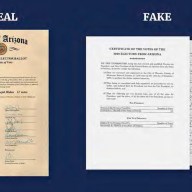Though they’re not the most popular of all plastic surgeries performed (that would be breast augmentation, with 296,000 surgeries done in 2010), liposuction procedures have increased two percent from 2009, to 203,000 procedures performed in 2010. For those considering the surgery, there are some new alternatives to going under the knife — like Zerona, a non-invasive laser alternative that was approved by the FDA last year. Zerona uses local anesthesia, which is thought to be safer than general anesthesia (used in traditional lipo) and causes and less tissue damage.
“Patients can go back to work straight after — there’s no downtime. You don’t feel anything,” says Kathy Bettencourt, RN, MSN, who uses Zerona at the Beach Plum Spas on Cape Cod and in Plymouth, Mass. The Zerona laser liquifies the fat and drains it via a small puncture in the cell, which heals within 72 hours. Then, the fat is disposed of naturally through the lymphatic system.
But not everyone is as enthusiastic about Zerona.
“If it sounds too good to be true, it is,” says Dr. Mitchell Chasin, founder and medical director of New Jersey’s Reflections Center for Skin and Body. “Zerona takes away general anesthesia, but that’s the only good thing about it. We found the machines were ineffective. The process involves drinking a gallon of water, cardio, no alcohol and a low-fat diet. It’s the lifestyle change that gives the reduction.”
Not so, says Bettencourt: “I tried it myself and lost several inches. I incorporated the diet program afterward and the weight has stayed off. I would never go back to using lipo. This is less aggressive.”
Other options
If you’re considering plastic surgery, other alternatives to traditional liposuction include Vaser, which uses ultrasound technology; lasers such as SlimLipo and SmartLipo; and Zeltique, a so-called “cool sculpting” laser method. But only fully trained professionals should do any procedure. For plastic surgeries, make sure the surgeon is board-certified and check for any malpractice suits (which can be easily found on medical board websites).

















